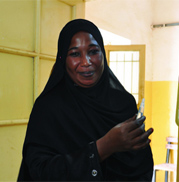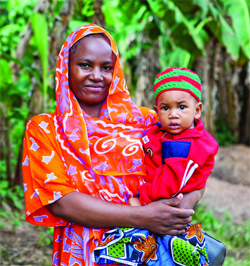 Bill and Melinda Gates are making a big bet. The lives of people in poor countries will improve faster in the next 15 years than they have in any other time in history. Vaccines will be part of this success story.
Bill and Melinda Gates are making a big bet. The lives of people in poor countries will improve faster in the next 15 years than they have in any other time in history. Vaccines will be part of this success story.
‘Health will improve dramatically. The number of children who die will drop by half and we’ll eradicate four more diseases,’ according to the annual Gates Letter, a comprehensive development agenda for 2030.
Until recently, the world was split in two, according the Gates Foundation: “In one half, virtually all children were vaccinated, had sufficient nutrition, and received proper treatment for common illnesses like diarrhoea and pneumonia. The number of children in this half who died before they reached the age of 5 was well under 1 percent.”
Then there was the other half.
“Here, vaccination coverage was spotty at best, children tended to be malnourished, and standard childhood illnesses went untreated. About 15 percent of these children died before they turned 5; in some countries that percentage was much higher.”
The Foundation has been investing heavily in vaccines and sees immunisation as a big part of the post-2015 development agenda.
If you want to save and improve lives around the world, vaccines are a fantastic investment: http://t.co/LeEt0xeGyv pic.twitter.com/DIdOcGD9l5
— Bill Gates (@BillGates) December 30, 2014
“Increased investment in health care has led to better coverage with the vaccines and treatments that were already available, and intensified R&D has led to the development of new vaccines and treatments. The percentage of children who die before age 5 has been cut in half.”
“We predict that the next 15 years will see the pace of these developments increase even faster. The world is going to make unprecedented progress in global health.”
Specifically, they predict that by 2030 the number of children dying before their fifth birthday will be halved. Almost all countries will include vaccines for diarrhoea and pneumonia, two of the biggest killers of children, in their immunisation programs.
Better sanitation — through simple actions like hand-washing as well as innovations like new toilets designed especially for poor places — will cut the spread of disease dramatically. And the health of new-borns can be boosted through breastfeeding and skin-to-skin contact immediately after birth.

Eradicating polio remains a priority. The disease has proven challenging to wipe out but Bill Gates – who describes himself as an ‘impatient optimist’ says it is achievable. In addition, he expects guinea worm to be consigned to history in the near future.

“We’ll also see the last of diseases like elephantiasis, river blindness, and blinding trachoma, which disable tens of millions of people in poor countries. The drugs that can stop these scourges are now being donated in huge numbers by pharmaceutical companies, and they’re being used more strategically thanks to advances in digital maps that show where diseases are most prevalent. Last year these free medicines were distributed to 800 million people.”
Another long-standing target is malaria. While Gates does not expect eradication by 2030, he thinks the tools for dramatically cutting its impact will be available.
“These will include a vaccine that prevents people with malaria from spreading it to the mosquitoes that bite them, a single-dose cure that clears the parasite completely out of peoples’ bodies, and a diagnostic test that can reveal right away whether a person is infected. Early versions of all these tools are in development now. In 15 years, we’ll be poised to send malaria the way of smallpox and polio.”
What do you think?
Will Bill and Melinda Gates win their big bet by 2030?
Share your views below
*Bonus video
Getting better all the time
If you don’t believe that things could get better – and, indeed, have been getting better for quite some time, give Hans Rosling three minutes of your time.



